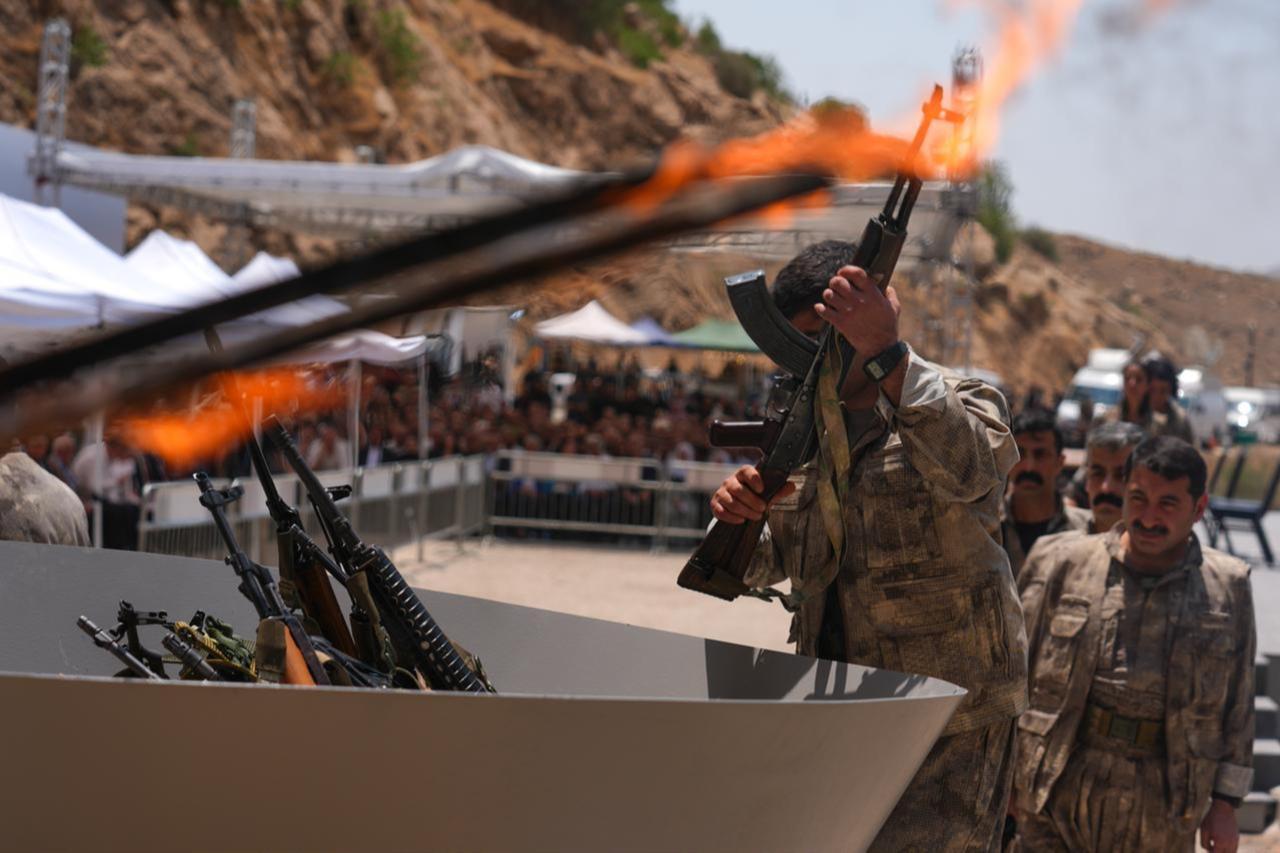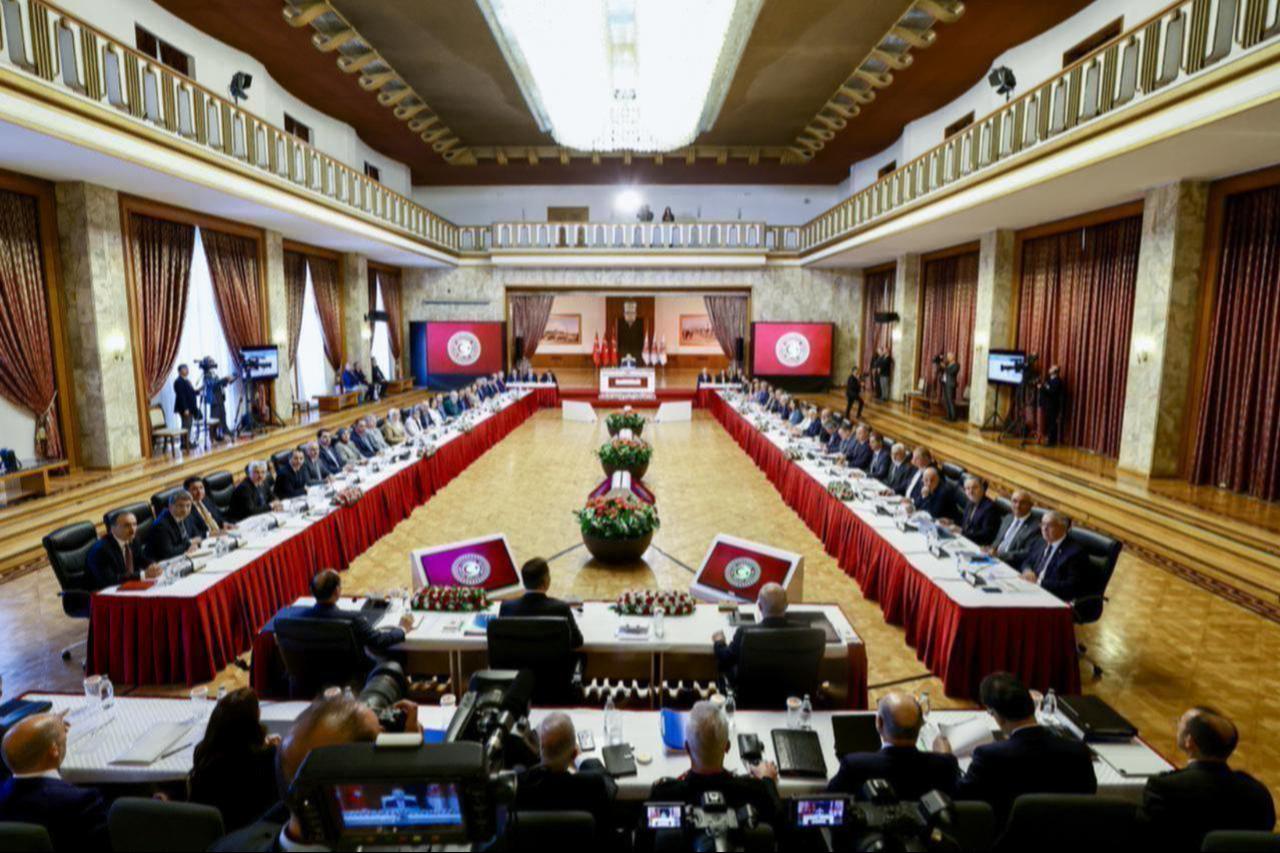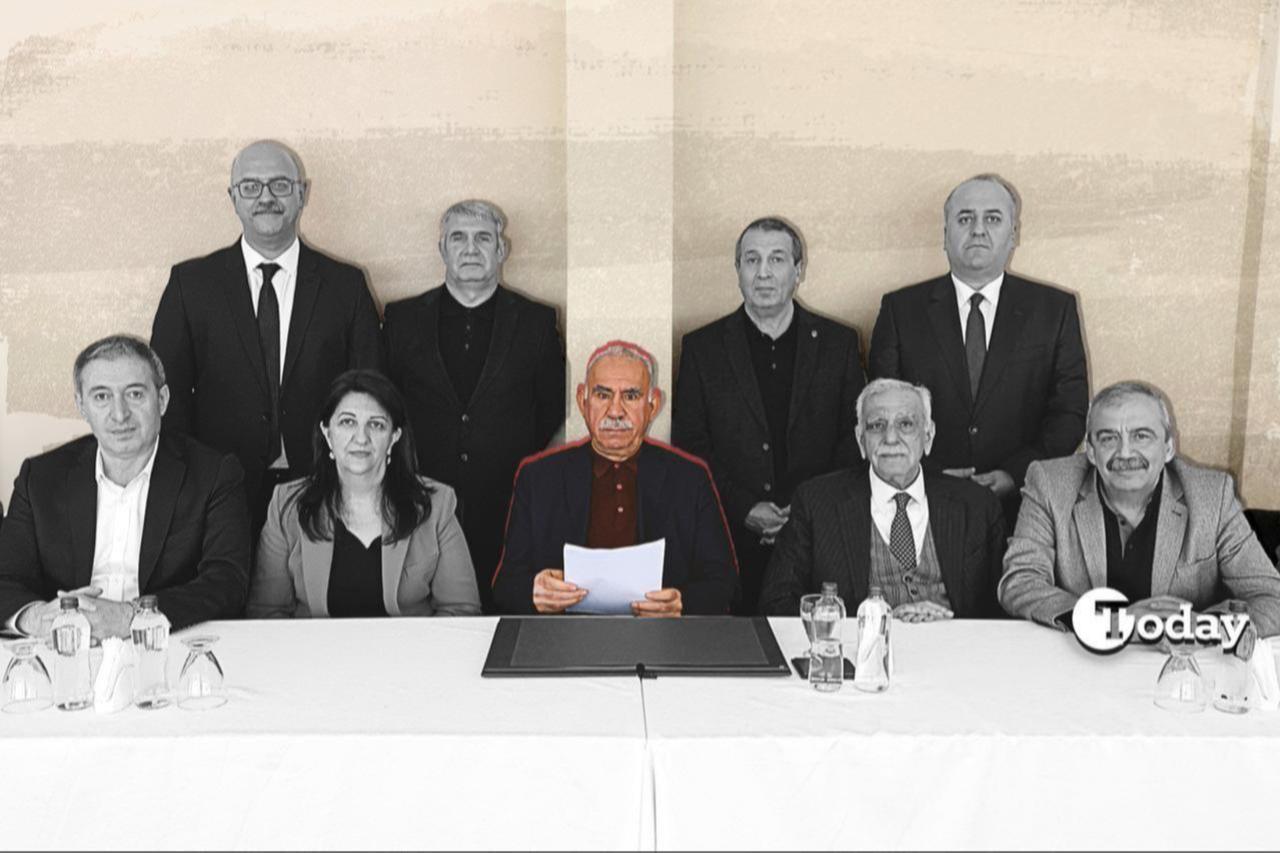
The recent visit by three members of the Parliamentary Commission on National Solidarity, Brotherhood, and Democracy to ringleader Abdullah Ocalan has reignited a long-dormant debate in Ankara. The delegation’s meeting on Imrali Island, approved during the commission’s Nov. 21 session, has now placed attention squarely on what steps may follow.
The Kurdish-oriented DEM Party announced it will request the full release of the meeting minutes, which reportedly lasted nearly three hours. Party leadership framed the encounter as carrying implications that go beyond domestic politics, pointing to potential relevance for resolving the Syrian conflict.
This marks one of the clearest attempts in years to link the PKK terrorist group problem to shifting strategic dynamics in Syria.
A debate that had been simmering in the Ankara-Damascus axis has now taken a decisive turn: it is no longer a question of whether Türkiye’s renewed engagement with Imrali will spill over into the Syrian file, but when.
In statements following the visit, leaders of the People's Equality and Democracy Party (DEM Party) emphasized Syria more than any other issue. Their comments were reinforced by recent remarks from Mazloum Abdi, a former close associate of imprisoned Ocalan, who said that certain core issues “can only be resolved through Imrali.”
His message referenced long-standing questions concerning fighters that are directly linked to the PKK within SDF units, one of Ankara’s most sensitive concerns in northern Syria.
Abdi publicly confirmed that indirect communication with Imrali has taken place and stated that guidance from there still shapes decision-making inside Syria. His comments also signaled that an Ocalan initiative could influence SDF positions, especially regarding combatants not native to Syria.
The focus on Ocalan’s potential influence indicates that regional actors recognize that the Syrian conflict is entering a new phase. With shifting U.S. commitments, Iranian retrenchment, and Russia’s reduced footprint in the Middle East, the local balance of power is again in motion.

For Ankara, the political significance of reengaging with Imrali lies not just in domestic calculations but in the broader regional picture. Over the past decade, major powers such as the United States, Russia, Israel, Iran and even Europe have at various times engaged with Kurdish armed groups or sought influence within their leadership structures. This has effectively internationalized Türkiye’s most persistent security challenge.
By authorizing a parliamentary delegation to meet Ocalan, Ankara appears intent on inserting its own initiative into a crowded strategic environment.
The move signals that Türkiye will not remain a passive observer while regional and global actors attempt to shape outcomes involving Kurdish political and military structures in Syria and Iraq.
A central factor in this calculation is Ocalan’s enduring symbolic and organizational influence. For decades, he has been acknowledged by allies, adversaries, and former commanders as the figure whose decisions can transform the trajectory of armed terrorist groups across the countries.
Türkiye is clearly playing the leverage it has, as Ocalan’s influence is evident even in the trajectory of Mazloum Abdi, the current SDF figurehead whom he personally helped shape.
Ankara’s decision also reflects assessments that prolonged armed insurgency has reached strategic exhaustion. Regional conditions, shifting alliances, and the evolution of modern warfare have made the continuation of classical guerrilla campaigns increasingly untenable. This aligns with assessments attributed to Ocalan over the past decade, suggesting that the military phase of the conflict has run its course.

Despite the strategic framing, domestic political divisions remain sharp. Some opposition parties declined to join the commission or refused to send members to the delegation. Critics argue that engaging Ocalan risks political backlash or legitimizing an organization as it’s a long-designated terrorist group by Türkiye, the U.S., and the EU.
Supporters of dialogue counter that Türkiye cannot afford to ignore a factor that continues to shape developments across its borders. They argue that multiple international actors maintain channels with the SDF or PKK-linked networks, while Ankara holds a unique position because Ocalan remains under its jurisdiction.
This disagreement reflects deeper tensions over how Türkiye should pursue long-term stability, whether through purely military means or through a combination of security, diplomacy, and political engagement. For some, the very idea of negotiations remains emotionally charged due to decades of conflict. Others view engagement as a pragmatic necessity in a region undergoing rapid strategic transformation.

The debate highlights an uncomfortable but unavoidable truth: meaningful political solutions often require working with actors seen as adversaries. Critics of the commission’s visit focus on symbolic costs, while supporters emphasize that the alternative, ceding influence to external powers, may be strategically riskier.
Political sensitivities, historical trauma, and fears of appearing weak on security are all significant domestic obstacles. Yet supporters argue that states rarely achieve durable outcomes in complex conflicts without engaging all stakeholders, including those they view unfavorably.
Ocalan himself, according to intermediaries over recent years, has expressed views that the era of armed struggle has passed and that reintegration into political structures is preferable to continued conflict. For Ankara, this represents a rare strategic alignment between state interests and the current thinking of the terrorist group's founder and ideologue.
Whether this moment produces tangible outcomes remains uncertain. But Türkiye’s decision to authorize contact with Imrali, after years of political loss sacrificed for land aspirations in Syria, reflects a willingness to seize an opening before external actors shape the next phase of Türkiye’s domestic problems, as well as the future of the new Syria.